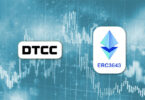Today Digital Asset Holdings (DA) announced that DAML, its smart contract language has been successfully integrated with several leading enterprise blockchain platforms. The blockchain firm collaborated with HACERA and Blockchain Technology Partners to bring DAML to Hyperledger Fabric, R3’s Corda, and Amazon’s Aurora cloud-based engine.
DA is perhaps best known as the developer behind the Australian Securities Exchange’s new settlement system, CHESS.
The programming language went open source earlier this year, and shortly after began integration on the VMWare Blockchain platform. It is also available on Hyperledger Sawtooth, making Fabric the second Hyperledger integration.
Today’s announcement adds three more platforms to DAML’s roster. Smart contracts created with DA’s innovative language can be deployed more widely, providing clients with greater choice of integration.
DAML sets itself apart by being a functional language designed for business workflows. Back in April, we did a deeper dive into the language when we spoke to the firm’s CTO, Shaul Kfir.
Last year DA won a competition for implementing the derivatives industry’s (ISDA) new standards around data and processes. Today the company will demonstrate a DAML derivatives implementation on Corda, Hyperledger Sawtooth, Hyperledger Fabric and Amazon Aurora.
DA’s co-founder and CEO Yuval Rooz is optimistic about today’s release. “Extending the power of DAML to multiple platforms is an exciting milestone and a continuation of our strategy to enable DAML to work anywhere and give clients more flexibility and choice to use the platform technology that best meets their needs,” said Rooz.
Hyperledger Fabric
DA’s partner HACERA integrated DAML with Fabric. The startup blockchain tech provider worked with IBM for the Hyperledger Fabric 1.0 release, and HACERA CEO Jonathan Levi is currently a Fabric lead maintainer. Since 2018 the company has had a Hyperledger Fabric network deployed on multiple clouds.
HACERA has open sourced the DAML integration work.
Levi was excited to work with a like-minded firm: “When Digital Asset open-sourced DAML, it aligned with our mission to enhance and secure distributed applications, allowing participants to collaborate.”
Corda
Enterprise blockchain company R3 has its open source Corda blockchain protocol. Both the major insurance consortia B3i and RiskStream have adopted the technology, and two of the major trade finance networks, Marco Polo and Voltron are based on Corda. Members of these consortia represent the majority of the Western world’s insurers and almost thirty global banks.
Today’s announcement means that Corda users now have a choice of smart contracting language in DAML. To date, Digital Asset and R3 have been viewed as fierce competitors.
“As Corda continues to consolidate its position as a market leader for enterprise blockchain solutions, this milestone provides DAML users with the ability to integrate to a critical platform and to develop decentralized applications across a variety of highly complex and heavily regulated industries,” said R3 Co-Founder and CTO Todd McDonald.
“This is a win for blockchain developers across platforms and brings a new flexibility to business users globally.”
The first non-blockchain integration: Amazon’s Aurora
Tech giant Amazon offers its cloud storage database, Aurora, on Amazon Web Services (AWS). Aurora is compatible with conventional databases MySQL and Postgres. DA integrated DAML with Aurora to match the demand for the language on a more traditional system. Hence users can write and deploy DAML code on Aurora, which has a large user base and is familiar to developers who are not using blockchain.
The integration is enabled by Blockchain Technology Partners’ (BTP) Sextant, a management platform available on the AWS Marketplace. BTP has previously worked with DA to integrate DAML with Hyperledger Sawtooth. Through Sextant, DAML will be available on Aurora in July.
“By adding DAML on Aurora frees clients up to focus on addressing
their business problem, then dial in the degree of decentralized trust required depending on their use case,” said BTP’s CEO, Duncan Johnston-Watt. He added: “It’s becoming clear that DAML has broader application,” beyond blockchain.






